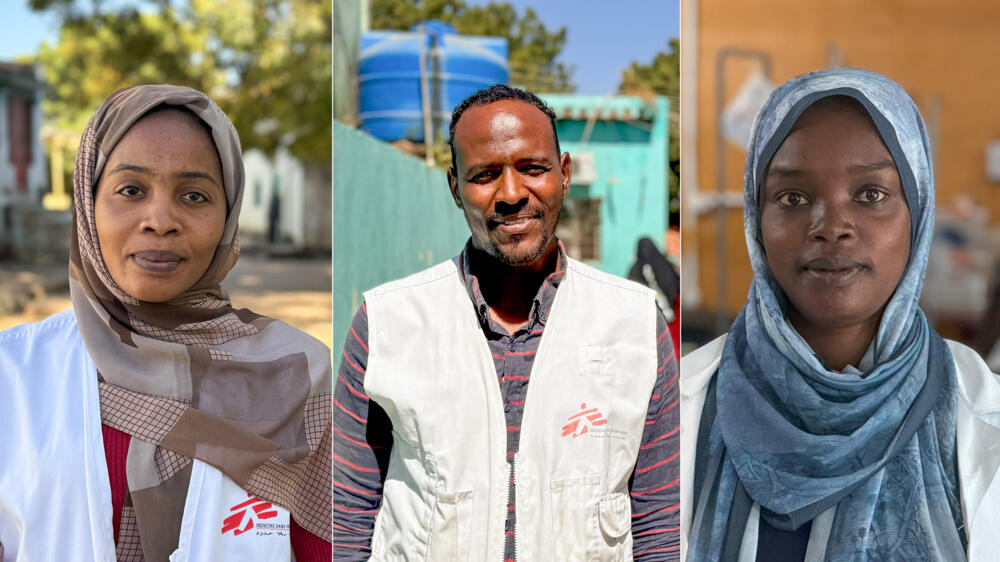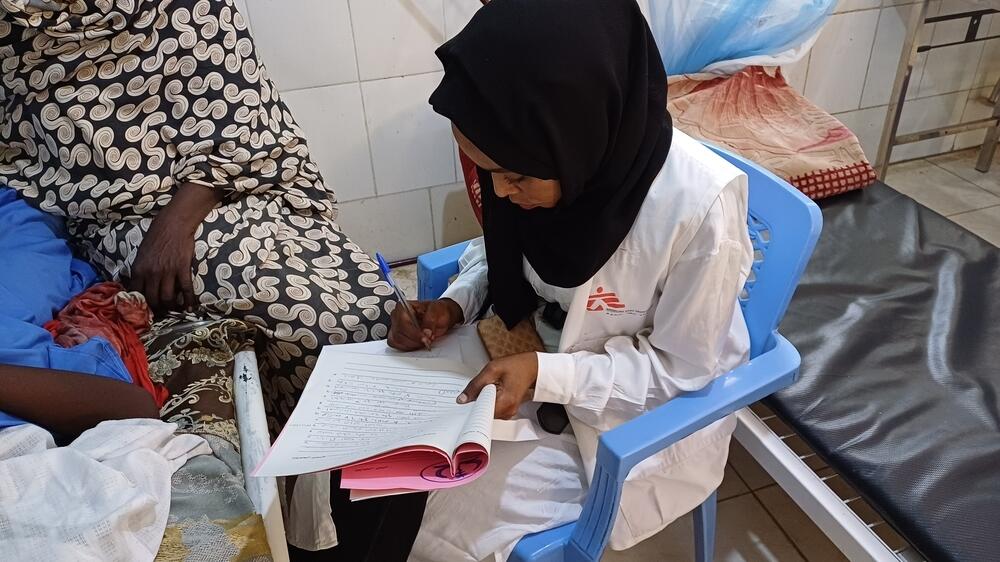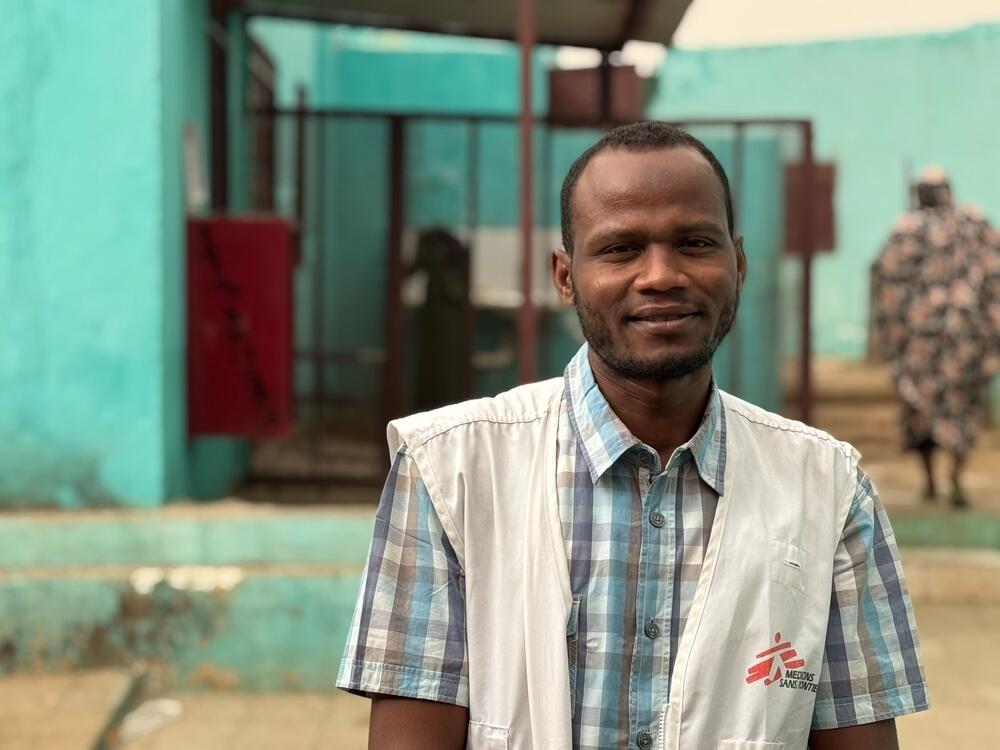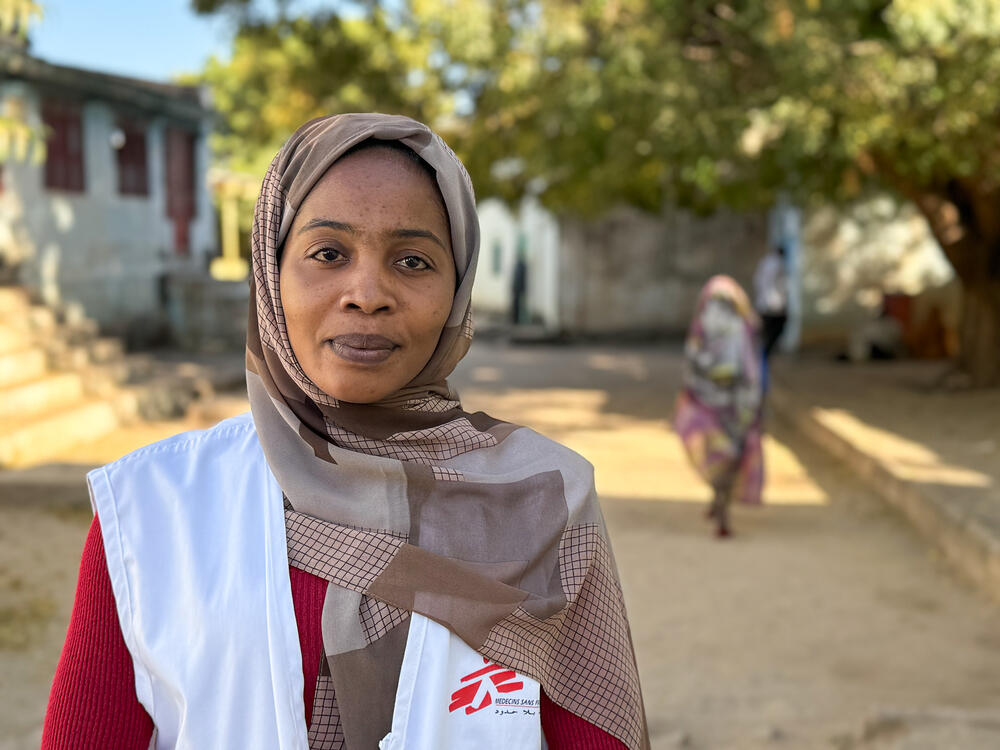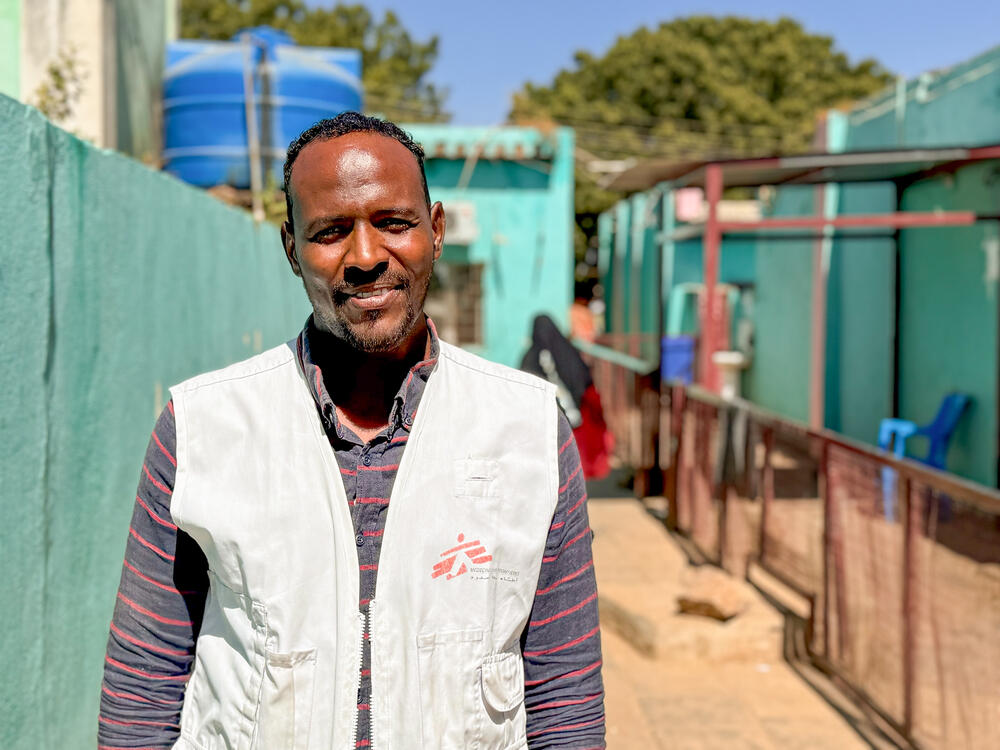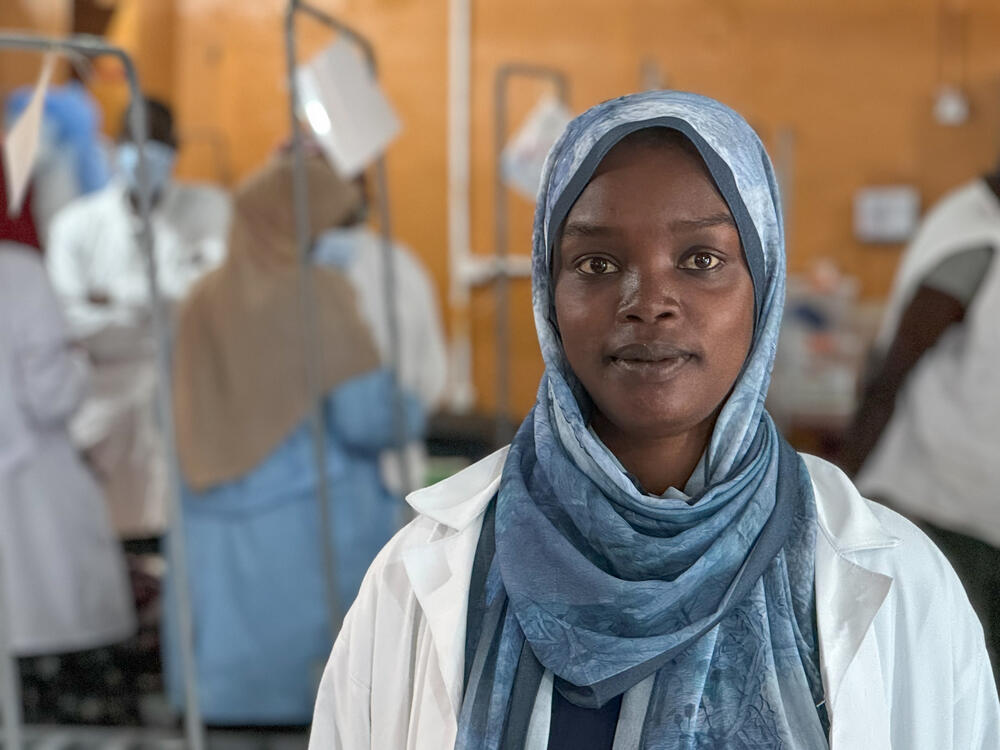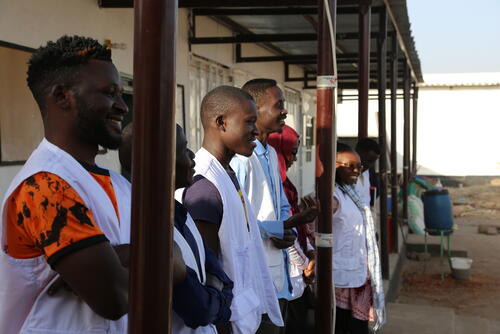Sudan: Staff testimonies from two years of war
22 April 2025
For two years, a brutal war between the Sudanese Armed Forces (SAF) and the paramilitary Rapid Support Forces (RSF) has ravaged Sudan, creating a humanitarian crisis that has spilled over its borders into neighbouring countries. Millions of people have been forced to flee their homes, and countless civilians have been killed or seriously injured.
As the war enters its third year on 15 April 2025, the conflict has become the world's most acute humanitarian crisis.
Attacks on infrastructure such as essential buildings, hospitals, roads, bridges and markets continued in many parts of the country. Civilians caught up in these attacks, like those in the Zamzam camp, have been deliberately trapped, left to starve and became easy targets.
Below, are some testimonies from our staff members who have worked in Sudan throughout the war.
Hanan Ismail Othman, medical doctor working in the South Jebel Marra project at KAS Hospital.
For the entire community, the impact has been devastating. Even psychologically, the toll has been immense.
As a doctor, I have noticed a significant rise in mental health cases. Post-traumatic stress disorder is increasing. Depression, anxiety, and sleep disorders are becoming more common. So many people are suffering from psychological trauma because they have lost their families, their homes—they have lost everything. Many were forced to live in IDP sites with no certainty about their future.
These have been the worst two years of my life. Everyone has lost someone, or at the very least, knows someone who has.
I personally lost dear people. Even my home. A shell hit our house. Thankfully, I didn’t lose any family members, but… it was devastating. Still, I am proud of myself. Because in such a situation, I was here, working and helping people.
I hope the war ends so I can live a normal life again and complete my medical specialization. I was in a residency program as a dermatology resident, but unfortunately, it was halted due to the war.
Habib B Galal, Medical Activity Manager working in El Geneina Teaching Hospital
Most of the resources that were in El-Geneina Teaching Hospital have been looted, and much of it was destroyed. There are other health facilities in West Darfur, but most of them are not functioning as they did before the conflict.
Before the conflict, the hospital was fully operational. But after the fighting began, most departments inside El-Geneina Teaching Hospital stopped functioning, including surgery, adult ER, maternity, neonatology, and paediatrics. Before MSF intervened, the hospital was not functioning at all.
Some services are still missing in El-Geneina Teaching Hospital and remain non-functional, including the adult ER, surgery, ICU, dialysis, and the radiology department. All of these essential services have been lost.
Right now, the situation is extremely difficult. People are suffering immensely. Many have had their properties looted, some have been killed, and countless others have been displaced.
It is challenging for some citizens who need to reach the facility, sometimes due to security issues. During the autumn, when the rain falls and the valleys fill with water, it becomes even more difficult for people outside El-Geneina to access the hospital.
Abda Eisa Osman Infection prevention and control supervisor at the El Geneina Teaching Hospital
Everything was stolen – there were no beds, beds for the patients were not there, medical devices, chairs, tables… nothing was there.
During the war, which has started here in El-Geneina, vaccination completely stopped.
Almahdi Abdelkarem Osman, Project medical referent support at the El Geneina Teaching Hospital
In May 2023, after the conflict broke out, health services in West Darfur were completely paralyzed. Most health facilities were no longer functioning.
At that time, in El-Geneina Teaching Hospital, we lost many patients, particularly those requiring dialysis. Most of the equipment needed to treat them had been looted.
When the fighting broke out in my neighbourhood, I volunteered at a small health center where we provided first aid. We attended to and stabilized injured people—stopping bleeding, dressing wounds—so they could be transferred to a facility where they could receive surgery.
Asma Mohammed Abdalkriem – Nutrition supervisor (MoH) at the El Geneina Teaching Hospital
In the ITFC, we see many cases of patient readmissions. When we discharge children after treating their malnutrition, we provide their families with advice on how to feed them properly, including the necessary nutrients they need. However, due to a lack of income, many mothers are simply unable to follow these recommendations and feed their children adequately. As a result, we often see them return to the ITFC. Poverty keeps bringing them back here.
